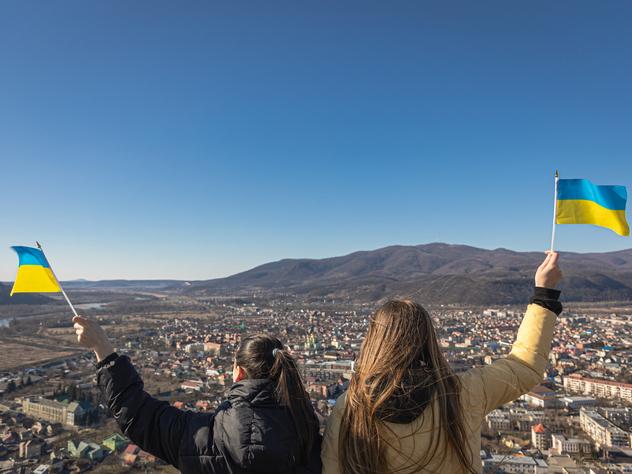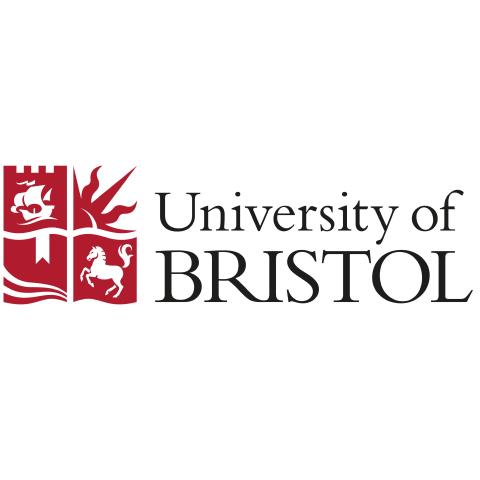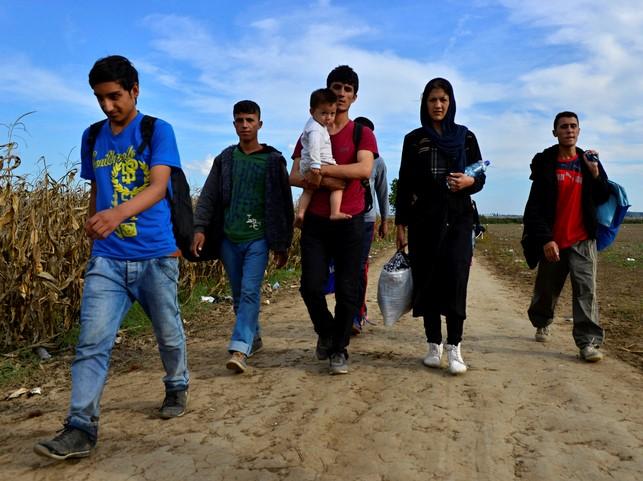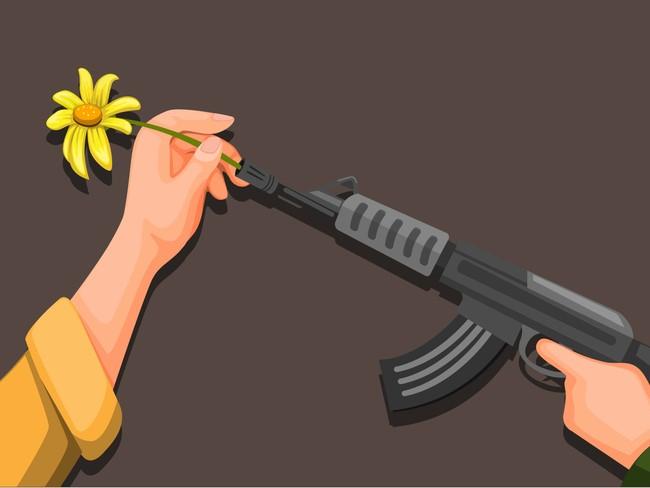
Eight ways UK academics can help students and researchers from Ukrainian universities
You may also like
Popular resources
The Russia-Ukraine war has affected every industry, including higher education in Ukraine, and the staff and students at its universities. The UK’s immigration policy and its geographical location meant that the UK sector was slower to respond to the crisis than its European Union counterparts. However, UK universities are well positioned to be at the forefront of supporting the Ukrainian academic community.
Feeling helpless? Here are eight tips on how you can make a difference, even if only small.
- How universities can support refugee students and academics
- Displaced workers deserve more than short-termism from universities
- Don’t let Covid disrupt bonding with overseas students
- Join an established UK working group aimed at supporting Ukrainian academics and students. Such groups have clear direction and a network of contacts, so they know where support is needed; this will make your actions more effective. Some UK-based examples are Science for Ukraine (S4U) – whose members include the authors of this resource – and the Ukraine Hub UK. Science for Ukraine is a global network of volunteers from more than 30 countries which collects and disseminates opportunities for scholars affected by the Russian invasion. The S4U support page and the Google calendar pull together current events. The Ukraine Hub UK runs task forces you can be involved in, depending on your expertise and preferences. Or, become a UK volunteer in the Ukrainian Global University (UGU) team. UGU is a network of educational institutions that provides educational opportunities to scientists and students worldwide to help rebuild Ukraine.
- Become a mentor for a Ukraine-affiliated academic. Mentors from all disciplines and at all career stages are welcome to sign up for the S4U UK mentoring scheme, and no previous experience of mentoring is required. The scheme aims to provide individualised, subject-specific support to help academics navigate UK academia. It covers career planning, preparing CVs and job applications, academic writing, how to secure research funding, and professional conduct. To register and for more information, follow the link or get in touch with one of its coordinators: Anna Bobak or Valentina Mosienko.
- Collaborate remotely with academics who are still in Ukraine. It is vital that research culture is preserved in wartime and at times of economic hardship. These actions tend to be grassroots, without central coordination, and requests come on a one-off basis, often to Polish academics due to proximity. For example, researchers in business management and food economy at Lviv University called for opportunities to co-author articles in the Scopus or Web of Science indexed journals without incurring the publishing costs. An alternative way for Twitter users is to ask for a retweet. If you would like to collaborate with a Ukrainian colleague on, for example, paper co-authoring, data analysis or data collection, tweet it and tag @Sci_for_Ukraine asking for a retweet.
- Be aware of UK support programmes so you can be ready if a Ukrainian academic or student gets in touch. Most UK academic positions are advertised on Science for Ukraine. Fellowships for academics from institutions such as the British Academy are funded through the Council for At-Risk Academics (Cara). Students have a unique opportunity to be part of the University of East London Open Learning Initiative (OLIve) that runs twice a year. It aims to introduce refugees, including those from Ukraine, to the UK higher education system. Useful information for students is also collated by the Student Action for Refugees (Star) network including a comprehensive list of opportunities for undergraduate students.
- Stay informed about the support your own university offers for Ukrainian staff and students and how to apply for it. The Scottish government has waived fees for displaced Ukrainian students, while in England international fees will be downgraded to home fees for Ukrainian students next academic year. Some institutions, for example, the University of Oxford, have announced a number of stipends for Ukrainian students. Ask your pro vice-chancellor for internationalisation to register your institutional support on the Science for Ukraine website. This ensures all useful information is collated in a one-stop-shop where dedicated volunteers can direct Ukrainian colleagues and students to appropriate support.
- Listen. Educate yourself. Disseminate. Listen to the voices of the Ukrainian academic community: the Ukrainian Ministry of Education and Science publishes regular updates in English with specific requests and news. You can also follow Twitter accounts of prominent Ukrainian academics; Tymofiy Mylovanov, president of Kyiv School of Economics, tweets about the school’s activity and charitable work. Educate yourself about the needs and ambitions of the Ukrainian academic community. For example, read a recent article in Nature Human Behaviour by the Science for Ukraine leaders. The authors outline the most effective ways of supporting Ukrainian scholars. If you are organising a seminar, invite a Ukrainian speaker. Disseminate opportunities via your own networks and Science for Ukraine Twitter and LinkedIn accounts.
- Stay informed about the work of your local refugee support organisations. For example, Forth Valley Welcome in Central Scotland is supporting individuals and families resettled in the area. This will allow you to redirect any housing or support enquiries to people who are experts in helping new residents.
- Don’t have time for any of the above? No problem! Contact and forward any queries to uk@scienceforukraine.eu who will happily take over from you!
With the small steps outlined above you can make a big impact supporting Ukrainian colleagues and students. As academics we have an opportunity to respond to the needs of the Ukrainian academic community in an informed and compassionate way. Let’s do it.
Anna K. Bobak is a Leverhulme early career fellow in the department of psychology at the University of Stirling; Valentina Mosienko is an MRC fellow and lecturer in neuroscience at the School of Physiology, Pharmacology and Neuroscience at the University of Bristol; and Igor Potapov is a chair in computer science at the University of Liverpool. All are members of Science for Ukraine. The UK branch is coordinated by Anya Skatova at the University of Bristol. For the list of Science for Ukraine international coordinators and members, click here.
If you found this interesting and want advice and insight from academics and university staff delivered direct to your inbox each week, sign up for the THE Campus newsletter.




